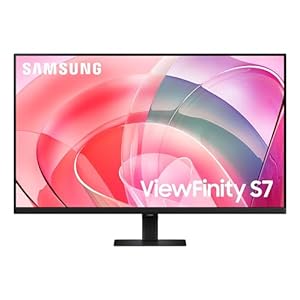In October 2022, China launched the final module of its orbiting space station. Since then, it hasn’t just been astronauts aboard Tiangong—an unusual and previously unknown microbe has also been occupying low Earth orbit.
A group of scientists examined swabs collected from inside the Tiangong space station, revealing a form of bacteria not known to inhabit Earth. The discovery, published in the International Journal of Systematic and Evolutionary Microbiology, highlights the need to study the newly identified microbial strain to protect the health of the astronauts on board the Chinese space station.
The previously unknown microbe, named Niallia tiangongensis after the space station where it was discovered, has proven especially resilient, surviving in the harsh conditions of microgravity. Tiangong’s Shenzhou-15 astronauts swabbed a cabin on the space station in May 2023 as part of a survey by the China Space Station Habitation Area Microbiome Program. Follow-up studies of the swabs traced the newly discovered microbe to a strain that appears similar to Niallia circulans—a rod-shaped, spore-forming bacterium originally isolated from soil.
It’s not clear whether the strain evolved on the space station or had already evolved on Earth before hitching a ride to low Earth orbit.
The newly described species can break down gelatin for nitrogen and carbon, helping it endure harsh conditions by forming a protective biofilm. It also packs its essential chemistry into tough spores, allowing it to survive in extreme environments.
Last year, scientists uncovered a mutated strain of drug-resistant bacteria thriving under the harsh conditions of space aboard the International Space Station (ISS).
Although Niallia tiangongensis and its ISS counterpart are both space-faring strains, they differ in composition and function, according to the paper.
It’s not clear if the bacterium poses a threat to the Tiangong astronauts, but the scientists behind the discovery say further examination of the new strain needs to be carried out. “Understanding the characteristics of microbes during long-term space missions is essential for safeguarding the health of astronauts and maintaining the functionality of spacecraft,” the paper reads.
Trending Products

SAMSUNG FT45 Sequence 24-Inch FHD 1080p Laptop Monitor, 75Hz, IPS Panel, HDMI, DisplayPort, USB Hub, Peak Adjustable Stand, 3 Yr WRNTY (LF24T454FQNXGO),Black

KEDIERS ATX PC Case,6 PWM ARGB Fans Pre-Installed,360MM RAD Support,Gaming 270° Full View Tempered Glass Mid Tower Pure White ATX Computer Case,C690

ASUS RT-AX88U PRO AX6000 Twin Band WiFi 6 Router, WPA3, Parental Management, Adaptive QoS, Port Forwarding, WAN aggregation, lifetime web safety and AiMesh assist, Twin 2.5G Port

Wi-fi Keyboard and Mouse Combo, MARVO 2.4G Ergonomic Wi-fi Pc Keyboard with Telephone Pill Holder, Silent Mouse with 6 Button, Appropriate with MacBook, Home windows (Black)

Acer KB272 EBI 27″ IPS Full HD (1920 x 1080) Zero-Body Gaming Workplace Monitor | AMD FreeSync Know-how | As much as 100Hz Refresh | 1ms (VRB) | Low Blue Mild | Tilt | HDMI & VGA Ports,Black

Lenovo Ideapad Laptop Touchscreen 15.6″ FHD, Intel Core i3-1215U 6-Core, 24GB RAM, 1TB SSD, Webcam, Bluetooth, Wi-Fi6, SD Card Reader, Windows 11, Grey, GM Accessories

Acer SH242Y Ebmihx 23.8″ FHD 1920×1080 Home Office Ultra-Thin IPS Computer Monitor AMD FreeSync 100Hz Zero Frame Height/Swivel/Tilt Adjustable Stand Built-in Speakers HDMI 1.4 & VGA Port

Acer SB242Y EBI 23.8″ Full HD (1920 x 1080) IPS Zero-Body Gaming Workplace Monitor | AMD FreeSync Expertise Extremely-Skinny Trendy Design 100Hz 1ms (VRB) Low Blue Gentle Tilt HDMI & VGA Ports







